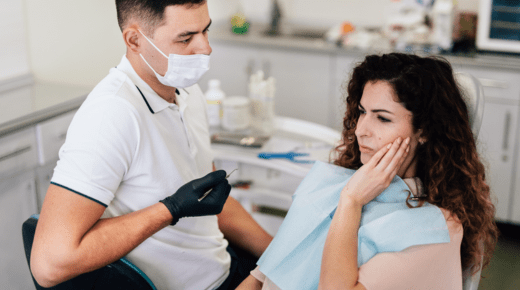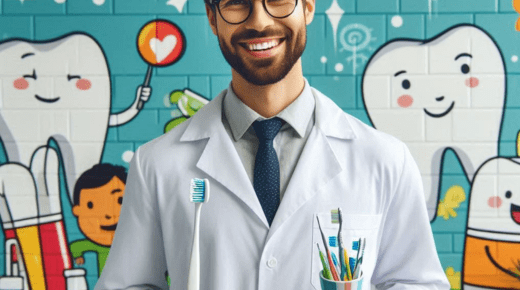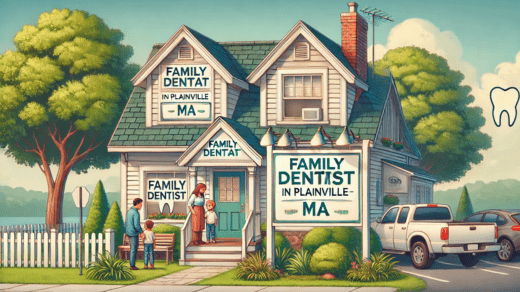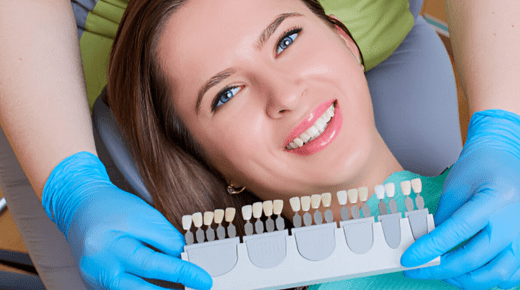When it comes to oral health, prevention is always better than cure. Dental emergencies can be unexpected and painful, but with some foresight and a few simple adjustments to your routine, many of these issues can be avoided. Whether it’s maintaining good habits, protecting teeth during sports, or being cautious with what you eat, taking the right steps can significantly decrease the chances of facing an urgent dental situation.
In this blog post, we’ll share with you practical tips to keep those unwelcome dental surprises at bay, ensuring your smile stays bright and healthy. Read on!
1. Maintain a consistent oral hygiene routine.
A strong oral hygiene routine is your first line of defense against dental emergencies. Brushing your teeth twice a day with fluoride toothpaste helps remove plaque and prevent cavities, while flossing daily cleans areas that your toothbrush can’t reach. Plus, regular use of antibacterial mouthwash also aids in eliminating harmful bacteria. These habits strengthen your teeth and gums, reducing the risk of unexpected issues.
2. Schedule regular dental check-ups.
Regular dental visits are essential for early detection and prevention of potential problems. Most professionals recommend visiting your dentist twice a year for a check-up and cleaning. These appointments allow your dentist to catch small issues before they escalate into severe conditions that might require emergency dental care. Additionally, professional cleaning effectively eliminates tartar buildup, which can lead to dental emergencies like gum disease.
3. Safeguard your teeth during sports and activities.
If you participate in contact sports or activities that put your teeth at risk, make sure to protect them with a mouthguard. Custom-fitted mouthguards provide the best protection for your teeth and jaw, lessening the likelihood of injuries such as chips, fractures, or knocked-out teeth. Investing in proper protection can save you from a painful and costly dental emergency later.
4. Be cautious with hard foods and objects.
Eating hard foods including nuts, popcorn kernels, or hard candies might result in chipped or broken teeth. It’s crucial to chew carefully and not use your teeth as tools to open packages or crack nuts. Biting on hard objects or chewing ice can weaken your enamel and increase the potential for fractures. That said, be mindful of what you put in your mouth.
5. Address dental issues promptly.
Ignoring minor dental issues can lead to more severe problems that may need emergency dental care. If you notice any signs of decay, a chipped tooth, or gum irritation, don’t delay in seeking treatment. A small cavity, if neglected, can develop into a much larger issue requiring extensive treatment. Promptly addressing these concerns with your dentist prevents emergencies from arising.
6. Avoid using tobacco products.
Tobacco use is a leading cause of various dental problems, including gum disease, tooth decay, and oral cancers. These conditions might result in painful dental emergencies that demand immediate care. Quitting smoking or using tobacco in any form not only improves your overall health but also reduces the risk of dental problems that might necessitate emergency dental care.
7. Handle teeth grinding and clenching.
Teeth grinding and clenching, known as bruxism, can cause significant damage to your teeth over time, leading to fractures or sensitivity. If you suspect you’re grinding your teeth, consult with your dentist. They may recommend a mouthguard or other treatments to alleviate the pressure on your teeth, safeguarding them from long-term damage.
8. Monitor your diet for oral health.
Your diet plays a vital role in dental health. By limiting sugary and acidic foods, you can prevent tooth decay and reduce the likelihood of needing emergency dental care. Consume a balanced diet rich in calcium and Vitamin D to support strong teeth and gums, and drink plenty of water to wash away food particles and bacteria that can cause decay.
9. Practice caution with DIY dental remedies.
Although home remedies for whitening or cleaning teeth may seem attractive, they often do more harm than good. Products like activated charcoal or abrasive toothpaste can wear down enamel, increasing sensitivity and the risk of damage. Always consult your dentist before trying any DIY dental treatment to ensure it’s safe and beneficial for your oral health.
By taking proactive measures and following these practical tips, you can greatly decrease the chances of experiencing common dental emergencies. A commitment to maintaining oral hygiene, scheduling regular dental check-ups, and protecting your teeth from potential hazards are key steps in sustaining a healthy smile.
Remember, it’s better to address minor dental concerns promptly rather than face painful and costly emergencies later. With a little precaution and care, you can enjoy strong, healthy teeth and the confidence that comes with them.





